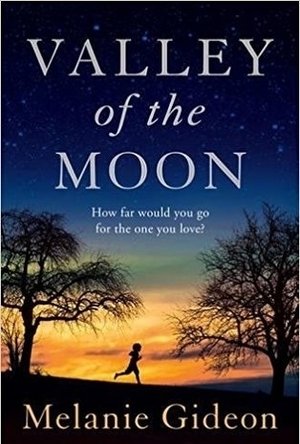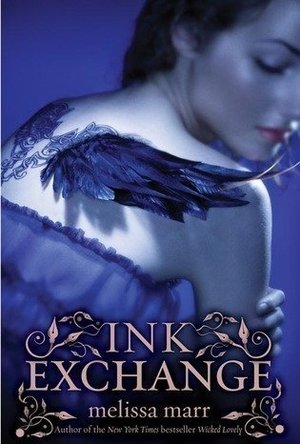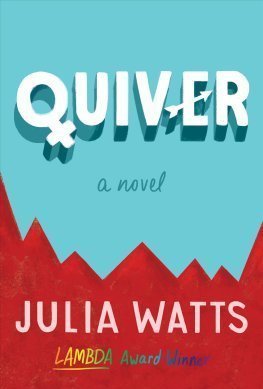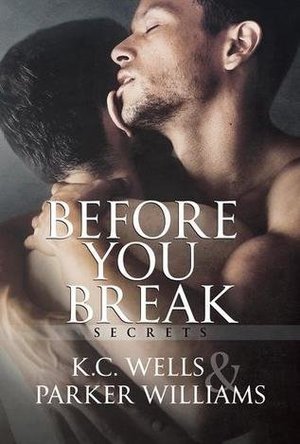
BharatMatrimony – Matrimonial
Social Networking
App
BharatMatrimony iOS app - Search Smarter! Match Faster! BharatMatrimony is the world's most trusted...

SAT.1 - Live TV und Mediathek
Entertainment and Lifestyle
App
KOSTENLOS FERNSEHEN mit der SAT.1 TV App. Filme, TV, Kino Blockbuster, Shows, Comedy & US Crime...

Kurio – App Berita Indonesia
News and Lifestyle
App
Want to read more news that is more accurate and "sane"? Kurio is the place. Enjoy completeness of...

Caveman Feast - 250 Paleo Recipes
Food & Drink and Health & Fitness
App
Caveman Feast for iPhone, iPad and Apple Watch contains 250 delicious Paleo recipes that are...

Black Beauty & Hair – the UK's No. 1 black magazine
Lifestyle and Magazines & Newspapers
App
Black Beauty and Hair is the leading hair and beauty magazine for women of colour throughout the UK...
Hazel (1853 KP) rated Touching the Rock: An Experience of Blindness (Notes on Blindness Film Tie-in) in Books
May 23, 2017
It is not often a blind man writes a book, and “write” is a word used due to the lack of a better. John M. Hull gradually lost his sight, registering as blind in 1980, a couple of days before the birth of his son. Although anticipating the event, John struggled to come to terms with his new circumstances and adjust to a new way of living. From 1983 through to 1985, John recorded his thoughts on tape, in diary form, as a way to ascertain and understand his predicament. Originally titled Touching the Rock (1990), John’s book has been republished as Notes on Blindness after the release of the film of the same name.
Initially, John made recordings every day, dictating the everyday occurrences he encountered. Amazingly, despite his disability, John was able to continue as a university lecturer and delve deeper into the world of theology. The way John thinks things through as he speaks reflects his academic abilities. Although he may have despaired at the thoughts of not being able to see his children, he had a fairly positive outlook on life.
John’s thought capacity and religious ideology are evident in his assemblage of diary entries. As a blind person, he learns to see the world in an alternative way, and often feels closer to God as a result. Through these new experiences, John begins to see the light despite the darkness.
The metaphorical descriptions of blindness help the reader to understand the horror and difficulties not being able to see visually provokes. This is heightened by John’s recordings of the bad dreams he often suffers, in which he is able to see. His fixations on these dreams are assumedly a fascination with visual imagery, which he does not have access to in his waking life.
It is hard not feel sorry for John as he reports the conversations he has with his young children. The effort to communicate and play with them is far greater than a seeing parent. Remarkably, as John begins to adjust to his new lifestyle, his children take the situation in their stride.
Notes on Blindness is also an educational narrative for those without sight problems. John explains the things other people, in attempts to be helpful, do that result in making things far more confusing for John as he tries to navigate his way from one place to another. Despite what most think, blind people are fairly good at walking routes they are familiar with, and, with the help of a stick, can safely travel through new areas. Once people start shouting instructions, it is difficult to pay attention to the location and listen to everyone else at the same time.
John’s voice is extremely articulate, and his thoughts profound, which may suggest heavy editing when compiling the recordings into written form. However, as he is an academician, his eloquence of speech does not feel forced or faked.
Notes on Blindness remains the same as the original publication but with the added inclusion of an introduction by Cathy Rentzenbrink, and an epilogue by his wife Marilyn, written in 2016, a year after his death. These, the latter in particular, provide an insight into how John’s blindness affected those around him and emphasises what a truly remarkable man he was.
Of the many memoirs available on bookshelves today, Notes on Blindness is a truly unique publication. It is not telling a story, or recounting a well-lived life, but gives great insight into the world of the blind. As John’s thoughts were not originally recorded with intention of being available to everyone, they are all the more personal and honest, provoking emotion and providing the reader with a new way of seeing. It is a book that will stay with you for a very long time.
Hazel (1853 KP) rated Valley of the Moon in Books
Sep 5, 2017
For fans of The Time Traveler’s Wife (Niffenegger, 2003) this captivating story by Melanie Gideon is an alluring, spellbinding work of fiction about loving, being loved and finding somewhere you belong. With a touch of time travel in an otherwise typical reality, Valley of the Moon will excite, enrapture and touch readers’ hearts.
It is difficult to give a synoptic review without giving too much of the plot away. In short, the book contains the two lives of complete strangers who meet under extremely unlikely circumstances. It is 1975 and Lux Lysander is struggling to make ends meet as a single mother in San Francisco. Estranged from her parents, Benno has become her life; Lux would do anything for him. The other half of the story begins in 1906 in the Californian Sonoma Valley. Joseph has achieved his dream of creating an Edenic community where races and classes can live in harmony. Greengage is a self-sufficient society where everyone is seen as equal, however, something happens to shake up the peace – literally. A huge earthquake mysteriously leaves the valley unharmed but completely surrounded by a deadly fog. No one can leave and no one can enter, that is until Lux does.
Until the two characters’ lives collide, the narrative is fairly typical, but it quickly takes on a theme that most minds would attempt to debunk. Through a wall of fog, Lux can pass between 1975 and 1906, whereas Joseph and his friends can only stay in their own timeline. Lux begins to live a double life: one with her son Benno and one with the antiquated lifestyle of the Greengage community. Unfortunately, it is only possible to pass through the fog on a fall moon, and not necessarily every month.
Lux’s modern appearance and colloquialisms baffle the community but she soon finds herself a place amongst the inhabitants. For a while, Lux is able to keep her two lives separate, but one slip up causes her to temporarily lose the love and trust of her only son. Torn between her own flesh and blood and the only place she feels she belongs, Lux has to decide how far she would go for the people she loves.
One of the key themes of the novel is relationship. Although romance develops toward the latter stages of the story, the majority is focused on familial love and love between friends. Lux and Benno’s relationship is particularly important, especially when their love becomes strained by Lux’s secret dalliance with the past. The other significant theme is about finding oneself. Lux lives in an era where, despite developments in women’s equality, single mothers are still shunned. Conversely, in 1906 where historically things were worse for women, the egalitarian society feels much more like home.
Lux’s temerity is to be admired as she continues to visit the past despite it being beyond the bounds of possibility. More applaudable is her determination to win back her son as well as her distant parents.
Despite being set for the most part in the 1970s and 80s, Valley of the Moon has a futuristic air about it, with an element of fantasy and science fiction. It is almost a version of The Lion, the Witch and the Wardrobe (Lewis, 1950) but for adults, with more realistic themes. Melanie Gideon admits that she got the idea for the novel from the film Brigadoon (1954) in which the protagonist stumbles across a magical land in the woods. With similarities, Gideon has created her own version of this fairy-tale-like scenario.
Journeying through a range of emotions, Valley of the Moon is a story that engages readers from beginning to end. With ups and downs, the author explores the lives and personalities of the main characters, which develop beautifully over time. This book is not one likely to disappoint its readers.
Rachel King (13 KP) rated Ink Exchange (Wicked Lovely, #2) in Books
Feb 11, 2019
I like the change in main characters, as we get to see this world through other characters' eyes as well as learn about different aspects that Keenan or Aislinn may not be familiar with. I had a difficult time finding a character to really love, as all three of the main characters, Leslie, Irial, and Niall, all seemed to have major faults that I had a hard time getting around. The theme for this book seemed to be the darker side of humanity and how deeply entrenched people can get into the "gray" area of life, while still believing that they are not doing anything wrong. Irial wants to only use Leslie, just as he has for every other mortal, but then he falls for her. Leslie wants to be her own person and hates her brother for his druggie lifestyle, but then becomes an addict just like Ren. Niall has shunned the Dark Court for all it stands for, even denying his own nature, but then wants Leslie so bad that he unknowingly uses what he is and what the Dark Court is about to try and lure her to him. In a word, they all behave like hypocrites, but Marr is such a good writer, that I find myself feeling sorry for all of them at some point. While in many fantasy genre works, the female lead often has to choose between two guys, Marr takes a completely unpredictable approach, and I think that I like this ending the best of all possibilities. Plus, since this is only the second book in a series, there is potential for Leslie to change her mind in the long run as she becomes more comfortable in her own skin.
The way that Marr approaches the horrific trauma that Leslie endured prior to this book's beginning is handled very delicately, as it should be. It is never really described in detail what exactly happens to her, and it is mostly left up to the reader's imagination, which I think is a smart move in that girls who have been in a situation similar to Leslie's can relate to her and feel like they have a voice in her words and thoughts. This alone is what makes this book both poignant and powerful. The fact that both males vying for her affection try to rescue her from this trauma in his own way is what redeems both of them for me.
Politics run heavy in this series, and while I am not really a fan of politics in real life, fantasy books often make it much more interesting, Marr's writing being no exception. The dynamics between the faery courts are quite intriguing and I think they seem to balance one another out well, even though at first glance it might seem like some should be kept over others. I find myself constantly wondering about the High Court and its Queen, Sorcha, which I can look forward to in the third installment in the series, Fragile Eternity (Wicked Lovely).
"It's all over the Bible--'be fruitful and multiply' and then there's Psalm 127 that says that children are like a warrior's arrows and 'blessed is the man whose quiver is full of them.' Some families like ours call themselves Quiverfull for that reason."
This was a really interesting, eye-opening, and sometimes scary novel. It was very well-written, and I really enjoyed it. A huge thanks to LibraryThing to introducing me to Julia Watts and her work. This novel is told in varying viewpoints between Libby and Zo, highlighting the stark contract between their upbringing and the way the two girls look at the world. It does an excellent job at showing how religion shapes your thought.
For Libby, her religious family is basically her entire life. We see how differently boys and girls are treated in her family, with the girls serving as helpmates in every way. She is not allowed any independent thought and is completely indoctrinated in her family's evangelical religion. Any thoughts she has that differ from her family's way of life make her feel strange and scared--and stepping out of line in any way means punishment. Even worse, she can't see any way out. Even though she doesn't want to, her future is set: getting married and having babies in the name of God.
Libby was so wonderfully written, and my heart ached for her. Watching her confront what she was taught, seeing her yearn for a different life--it really opened my eyes to how hard it must be for so many kids raised in religious homes. It's so easy to be derisive about religious views with which you don't agree, but the book did such an excellent job showing how Libby didn't have a choice: religion was such a part of her life from the moment she was born.
Zo's character was great, too. She didn't always seem as fleshed out to me, but it was refreshing to see a gender fluid character in YA literature. She was very down-to-earth, and it was nice to see her sexuality not be her defining characteristic. I also enjoyed how very feisty she was:
"The fact that Mr. Hazlett justifies his dictatorship through religion makes me think of all the families and communities and countries that have been torn apart because of people who claimed to be acting in the name of God."
This was a lovely book, which even had some surprises. It made me want to cry at times and laugh at others. It's very well-written and so beautiful to read. The subject matter is different, well-worth reading, and wrapped up in a very entertaining and interesting story. It certainly gets you thinking, plus it's very hard not to fall for Libby and Zo, too.
I received a copy of this novel from LibraryThing and Three Room Press in return for an unbiased review - thank you!
Debbiereadsbook (1630 KP) rated Before You Break (Secrets #1) in Books
Apr 24, 2019
Six years ago, Ellis joined the Specialist Firearms Unit. Wayne was his partner, but Wayne wanted more, much more. Ellis is straight though. When Ellis begins a spiral downwards, and Wayne can no longer keep covering for him, he knows what he needs to do. Question is, will Ellis let Wayne help the way he wants to, the way Ellis NEEDS him to?
Book one of the Secrets series, which is a spin off from the Collars and Cuffs series. I’ve no read ANY of those, so this is brand new to me.
I really REALLY loved this one!
Ellis is, by his own admission, struggling to come to terms with his responsibilities forced on him at an early age, an age when he should have been learning how to be a boy, not a man. Wayne keeps covering for his silly mistakes but it’s getting more and more difficult. After a particularly difficult op, Wayne decides enough is enough and knows what Ellis needs. But Ellis has always portrayed himself as straight, and vanilla and Wayne is neither. Wayne knows Ellis needs to be “taken in hand” to get to the bottom of what’s bothering him, and Wayne is just the man to do it: the ONLY man to do it.
Not all of Ellis’ problems are immediately clear, and it takes time for the full picture to develop and I loved that. You don’t get a massive info dump. Ellis is. . . .difficult . . .when Wayne introduces him to the lifestyle and it is, in some places, rather amusing the conversations Ellis has with himself about what Wayne is doing, WHY he is doing it.
Wayne has loved Ellis since first meeting him 6 years ago, and to have carried that flame for so long was hard on him, but finally getting his hands (quite literally!) on Ellis is a balm to his soul. Ellis is his other half and he needs Ellis to see that.
The story unfolds at a steady pace, with Wayne kinda plodding along with Ellis till ELLIS decides he wants more, and I really did like that. Sometimes, things need to speed along but not so much here and it made for a great listen.
Joel Leslie narrates.
Leslie is, in my humble opinion, a MASTER at accents. These two guys are Londoners, and the accents were spot on. Jarod and Eli pop up, they are the new owners of Secrets and their accents are very different but again, spot on. Leslie does get all the emotions that both Ellis and Wayne are going through, and I cried in some places. I ooohhh-ed and aaahhh-ed and YAY-ed and NOOOOOOOOOOOOOOOOOOOOOOOOOO-ed in places, out loud. I don’t do that when I’m reading but when I’m listening I seem to be more vocal with my reactions and I can only assume that’s the skill of the narrator coming across.
I had to giggle a bit though. Mr Leslie is, I think, American, and the man CANNOT say leisurely like we do in the UK. Every other word was spot on, but that one? Nope, not right. But I won’t hold it against him, cos I LOVED this narration!
I already have book 2 lined up, and I hope that Wayne, Ellis, Eli and Jarod pop up along the way. Be great to catch up with them.
5 stars for the book
5 stars for the narration
5 stars overall
**same worded review will appear elsewhere**




